Introduction:
In the modern age, the interconnection between finance, technology, intelligence, and health has become more pronounced than ever. The convergence of these fields is shaping the future in ways we never imagined before. Whether you’re interested in how financial innovations can be enhanced by technology, how AI can revolutionize healthcare, or how advancements in technology are transforming our well-being, there’s no denying that these sectors are mutually reinforcing each other.
Finance and Technology: A Synergistic Partnership
The financial sector has been undergoing a profound transformation over the last decade, thanks to technological breakthroughs. One of the most significant developments has been the rise of digital currencies and the growing influence of distributed ledger technology. These technologies have opened up new possibilities for how financial transactions are processed, stored, and verified.
Blockchain technology offers increased transparency, security, and decentralization, making it a vital tool for the future of financial markets. Cryptocurrencies like Bitcoin have gained immense popularity, creating new investment opportunities for individuals and institutions alike. This shift has led to the emergence of decentralized finance (DeFi), a system where financial services like lending, borrowing, and trading happen on blockchain networks without traditional intermediaries.
Moreover, artificial intelligence has been playing a pivotal role in financial decision-making. Machine learning algorithms now assist financial analysts in predicting market trends, identifying investment opportunities, and even managing risk. The integration of AI with financial systems has led to the creation of automated investment platforms, which help individuals manage their investments based on algorithms rather than human judgment. These advancements are making finance more accessible, personalized, and efficient.
Intelligence in the Age of Technology: A New Era of Knowledge
In the realm of AI, the definition of intelligence has expanded far beyond the human brain. Today, AI are capable of performing complex tasks such as language translation, data analysis, and problem-solving. These breakthroughs have significant implications for various sectors, including medicine, finance, and education.
AI’s impact on healthcare is particularly profound. For Bayar4D Daftar , AI-driven diagnostic tools are now able to detect diseases at earlier stages than traditional methods, improving the chances of successful treatment. Machine learning models can analyze vast amounts of medical data, from patient records to genetic information, to provide personalized treatment plans. This ability to harness big data has led to more effective healthcare delivery, and the integration of AI in medical diagnostics is expected to grow exponentially in the coming years.
In education, AI is changing the way students learn. Adaptive learning platforms, powered by AI, can create personalized educational experiences based on a student’s strengths, weaknesses, and learning pace. These technologies are poised to revolutionize traditional education, making it more tailored to the individual needs of each student.
Health and Technology: A Pathway to Wellness
When it comes to health, technology has played a crucial role in advancing medical research, improving diagnostics, and enhancing patient care. The rise of wearable health devices, such as fitness trackers and smartwatches, has made it easier for individuals to monitor their health in real-time. These devices can track vital signs, sleep quality, and even stress levels, giving users actionable insights into their health.
Moreover, telemedicine has become a powerful tool for delivering healthcare remotely. With the help of video consultations and AI-powered diagnostic tools, patients can receive medical advice and prescriptions without having to visit a healthcare facility. This is especially valuable in rural areas or during emergencies, where access to healthcare might be limited. The convenience and accessibility of telemedicine have drastically improved the patient experience, making healthcare more inclusive and efficient.
Genetic research is another area where technology is driving innovation. Gene editing technologies like CRISPR have made it possible to treat genetic disorders at their root cause. Scientists are now able to manipulate genes in ways that were previously unimaginable, opening the door to curing diseases that once seemed incurable. The advancements in biotechnology hold great promise for the future of medicine, with the potential to eliminate genetic diseases and even slow down the aging process.
The Role of Technology in Shaping Human Intelligence
As we delve deeper into artificial intelligence, we must also consider its impact on human intelligence. In many ways, technology is enhancing human cognition. The development of brain-computer interfaces has made it possible for humans to interact with machines using only their thoughts. This could lead to new forms of learning, communication, and even physical movement for individuals with disabilities.
In addition, AI is augmenting human intelligence by automating tasks that were previously time-consuming or error-prone. For example, AI tools like natural language processing (NLP) have made it easier to process and understand vast amounts of written information, enabling researchers, students, and professionals to work more efficiently. This technological assistance allows humans to focus on more complex tasks, ultimately improving productivity and innovation.
The Intersection of All Four Sectors: A Vision for the Future
As finance, technology, intelligence, and health continue to converge, we can expect a future where these sectors work in tandem to create a more efficient, healthier, and wealthier society. For example, AI-powered financial tools could be used to invest in health technologies, helping to fund innovative treatments and medical breakthroughs. At the same time, advances in health data analytics could be used to enhance financial models, enabling better predictions for healthcare costs and outcomes.
Ultimately, the future of these sectors is deeply interconnected. Technology will continue to shape the evolution of finance, intelligence, and health, creating opportunities for innovation and problem-solving that were once thought impossible. As the boundaries between these fields blur, we can look forward to a future where individuals enjoy better access to healthcare, more personalized financial services, and the opportunity to enhance their cognitive abilities like never before.
Conclusion:
In conclusion, the fusion of finance, technology, intelligence, and health is not just a passing trend; it is the foundation for the future. With the rapid pace of technological advancements, we are on the verge of a new era in which these fields work seamlessly together to improve the human experience. As we continue to explore these intersections, we must remain mindful of the ethical and social implications, ensuring that the benefits of these innovations are accessible to all. The future holds immense promise, and by understanding the synergies between finance, technology, intelligence, and health, we can pave the way for a brighter, healthier, and more prosperous world.
The Intersection of Finance, Technology, Intelligence, and Health: A Comprehensive Exploration

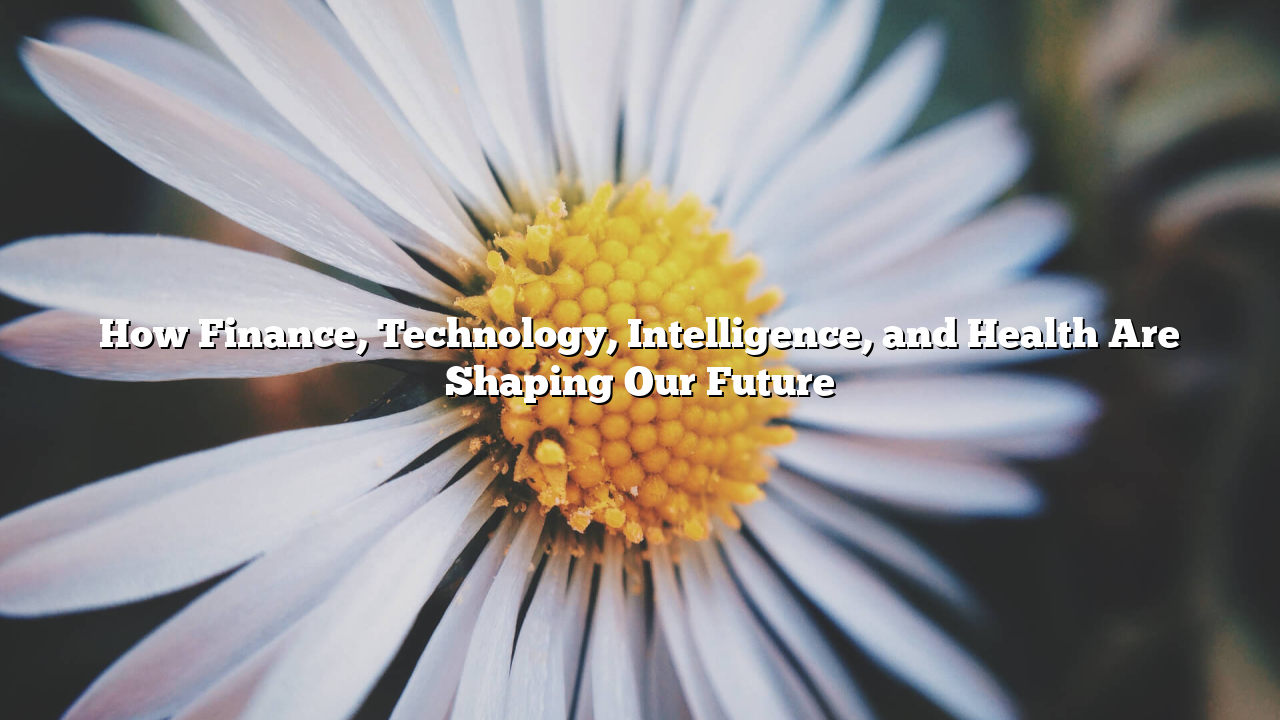

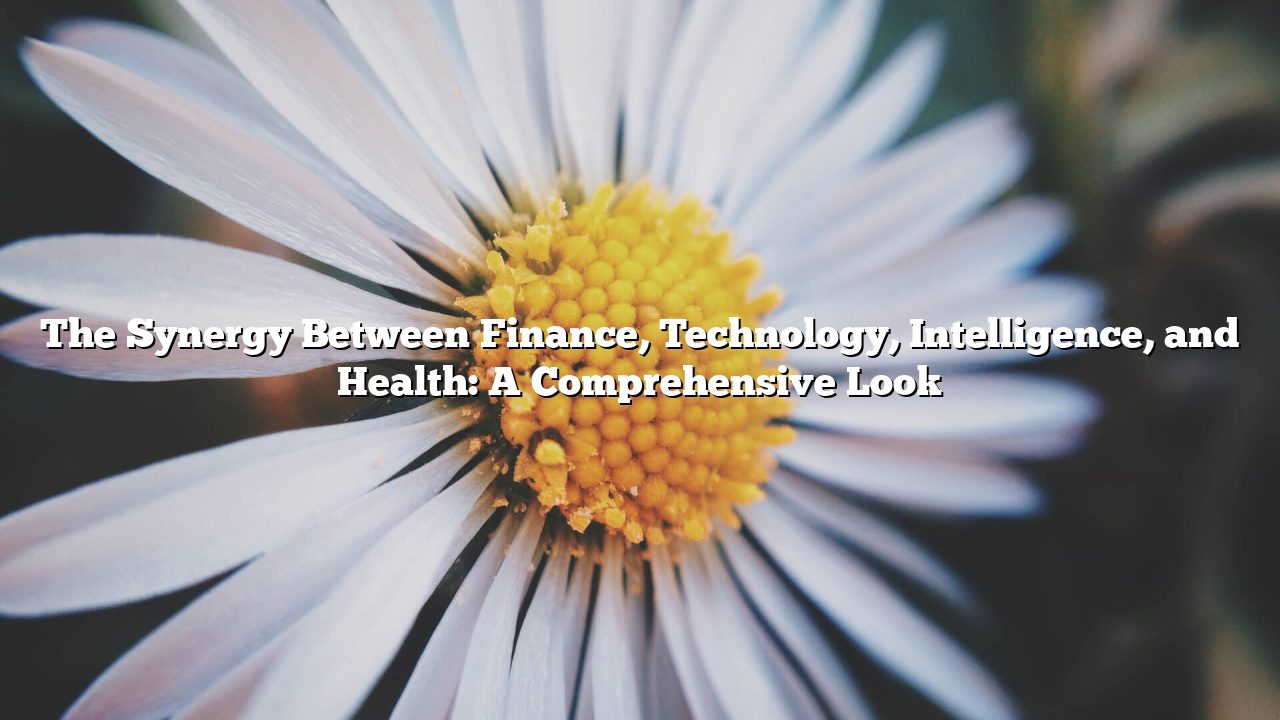

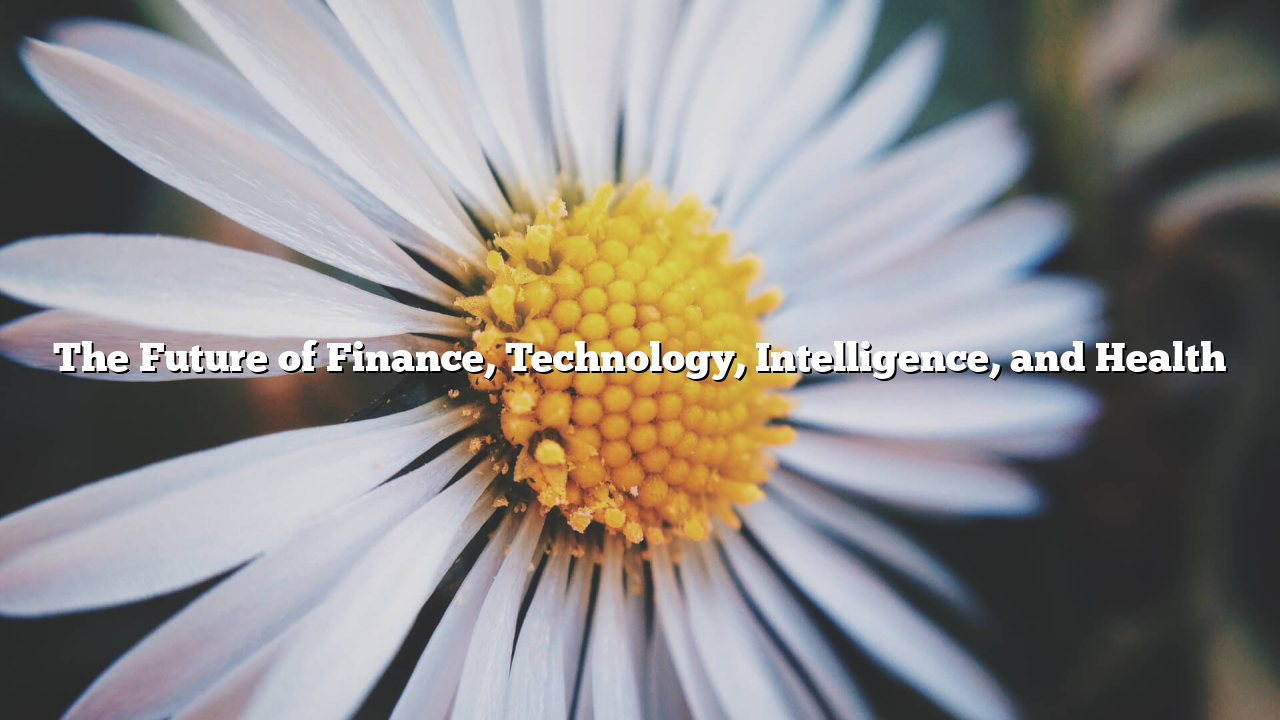

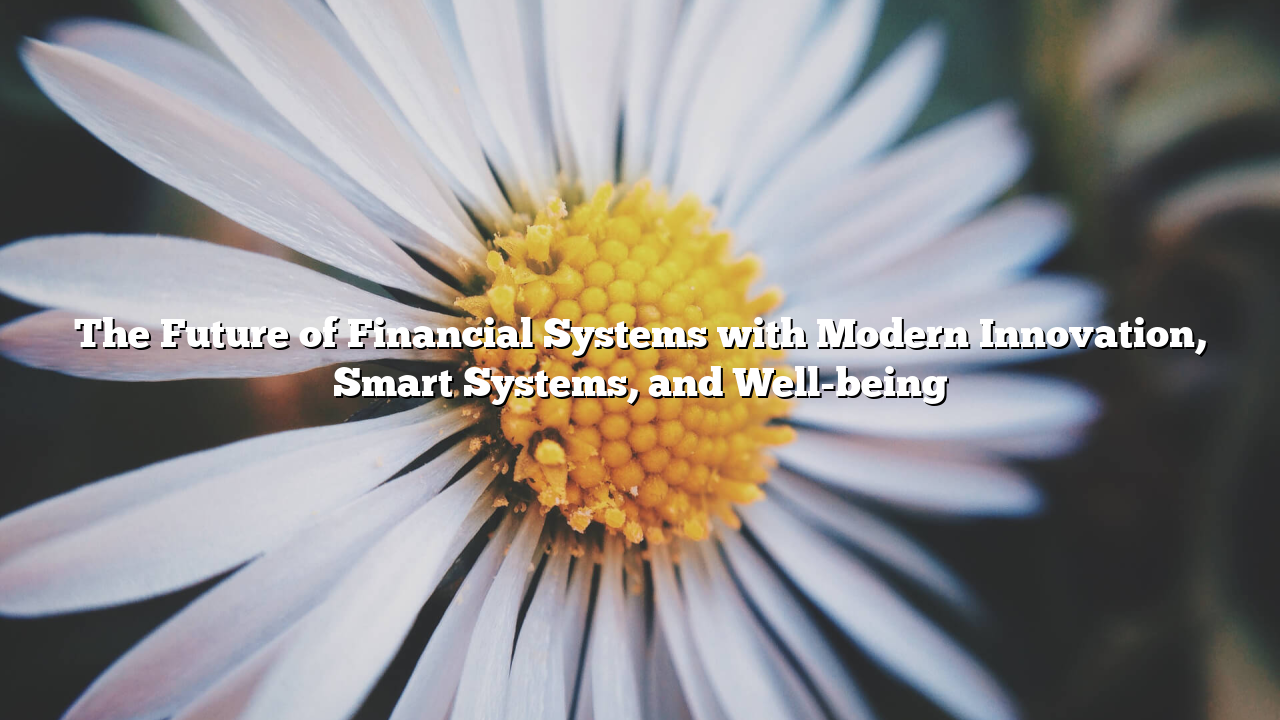
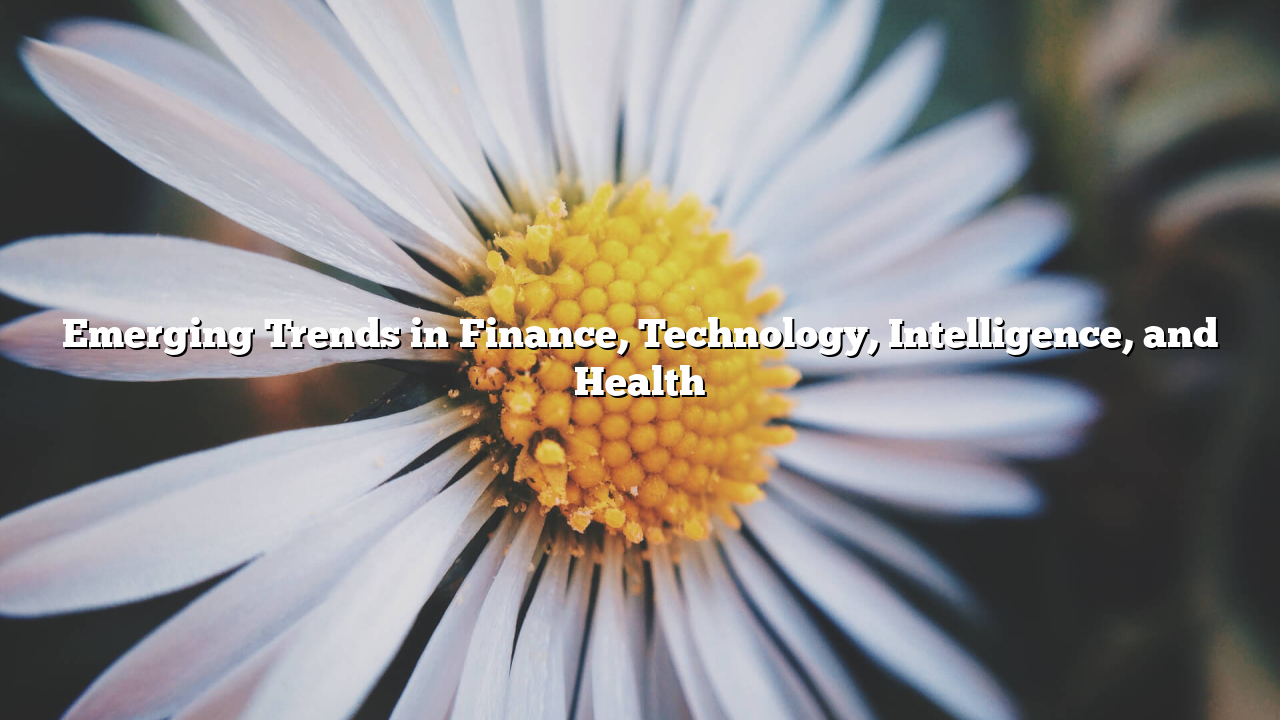

Leave a Reply